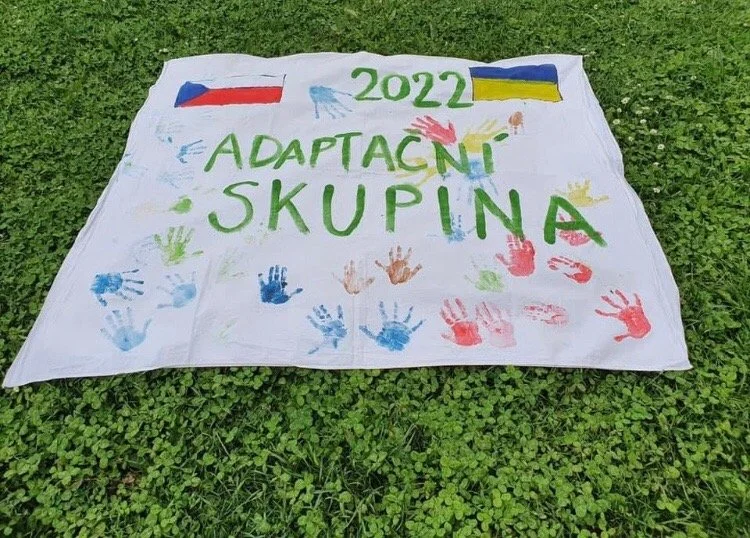Otevřená Polička: A Community of Devoted Citizens
In Eastern Czech Republic, August 1, 2022 marked the 30th anniversary of the communists’ relinquishing of the Prazan Drevozad Sawmill to my distant cousins. A grueling 40 years of totalitarian communist rule devastated the community, especially precious family-run businesses. The Prazan family marked the occasion at the thriving family owned and operated sawmill and the miniature historic landmark. They toasted the anniversary with locally-brewed beer, traditional Czech food, and overall jubilation.
The sawmill and the Prazan clan are located in the small Czech village of Polička, which was founded in 1265 by King Premysl Otakar II during his expansion of the Moravian Empire. A picturesque town of 9,000 inhabitants, it features a town center and hall encircled by medieval-era walls and exuberant baroque buildings that withstood the Russian invasion of 1968. This can be seen in the abundant Soviet-era architecture outside of the 9th-century city wall.
Thanks to its location in East Czechia, Polička has witnessed a small influx of Ukrainian refugees beginning in March 2022 after Russia’s initial invasion the month prior. I happened to be in Polička at the time visiting my distant relatives; as former Velvet revolutionaries, they were reminded of Russia’s vicious invasion not even 50 years ago. With open arms and hearts, Hanka and Jiri Prazanova, cousins on my mother’s side, kickstarted a temporary kindergarten for Ukrainian children ages 6 to 9 with the help of their community. Hanka and Jiri are perfect examples of global citizens: focusing on their own community and neighbors, but holding space, respect, and mindfulness for greater global issues. I was able to observe the daycare; nothing short of pure heart was put into the project. The attempt was to create a safe space for the children where they could pick up the Czech language and comfortably integrate into their new community. Traditional Ukrainian food was made for meals, berry-picking and hiking adventures were a weekly occurrence, and the space and staff were warm and welcoming.
Their heart and dedication is furthermore apparent in the creation of Otevřená Polička, a political party hoping to win enough votes to have a presence in the town hall starting in September. Their agenda is considerate of larger global and regional issues as well as the betterment of Polička. The name literally translates to “Open Policka '' – to the market, refugees, and Europe. The name also pays homage to “Otvírání studánek,” meaning, “The Opening of the Wells,” an instrumental piece composed by Polička-born composer, Bohuslav Martinů.
A constant struggle within Czech politics is how progress can be blended with Czechia’s sacred history. Polička residents are weary of making space for Ukrainians; frugality and economic anxiety create concern for whether there are enough space and resources to share. However, Otravani Polička, including Hanka and Jiri, value their solidarity with Ukraine. The progressive party emphasizes the acceptance and integration of Ukrainians into Polička. Otravani Polička believes that the fight against Russia lies in the preservation of history and Czech and Ukrainian culture. To preserve and cherish a culture even through years of oppression is an act of resistance; serving the authentic Ukrainian dish pohanka at the daycare and singing Ukrainian nursery rhymes, follows the principle. On a smaller political scale, if elected into town hall, a push to maintain historical aesthetics, which they are hoping to achieve through investment in architecture and historical preservation and education, is a priority. Preserving culinary culture, historical aesthetic, and allyship with countries oppressed by Russia are core beliefs of Otrevani Policka.
The newly elected representatives will choose the mayor, deputy mayor, and other members of the city council from amongst themselves, and will elect committee chairmen. Currently, the ANO-ODS, a fairly conservative party, are presiding over the election period. Otrevani Polička would carry out advisory and control activities for the council, give recommendations and, by their very nature, form a kind of counterweight to the city council which has executive power. Other democratic parties have attempted to create a coalition, but the biggest leading party, ANO-ODS denied part of the coalition.
The Ukrainian children who attended the daycare are now enrolled in Czech schools, and Otrevani Polička is preparing for their first post-election in late October. As the situation with Ukraine continues to unravel, it is certain that this small Czech village will do its part to support its Czech and Ukrainian residents alike.
Image courtesy of L. Bethell Seese, ©2022, some rights reserved.
The views and opinions expressed in this article are those of the author and do not necessarily reflect those of the wider St. Andrews Foreign Affairs Review team.



